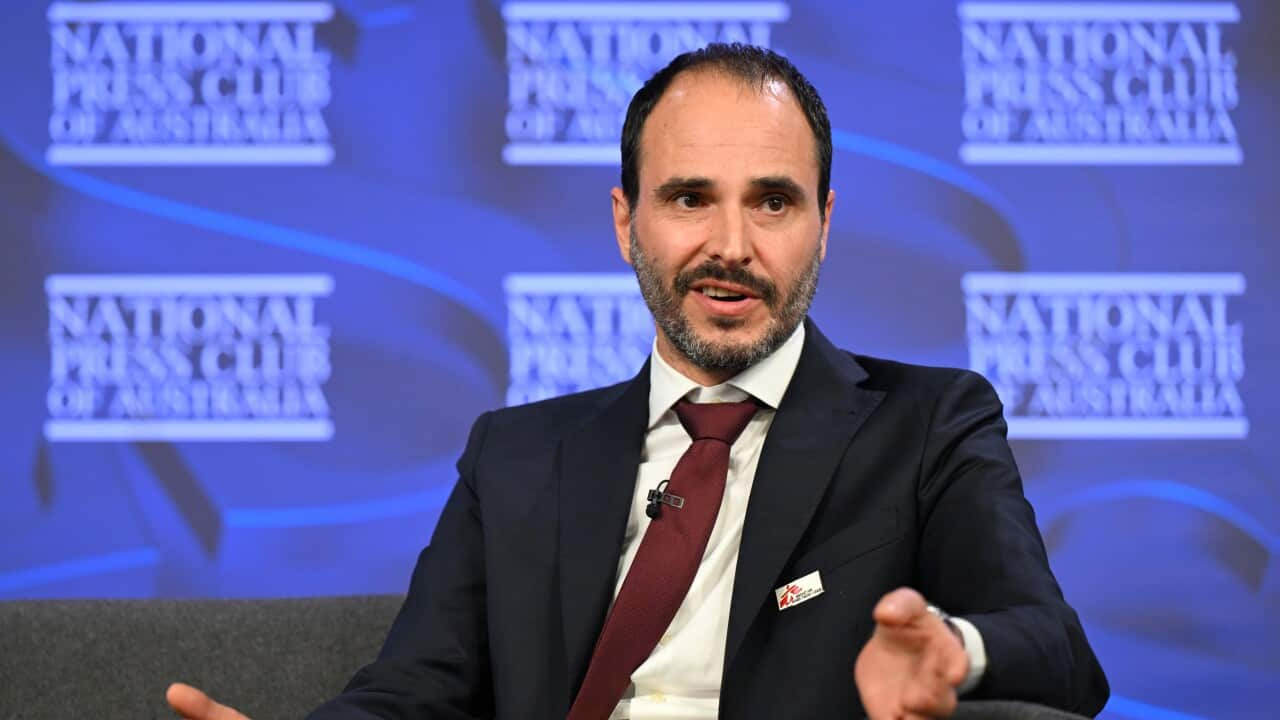Key Points
- Israel has denied striking a designated evacuation zone near Rafah in Gaza where 21 people have been killed.
- It comes after an Israeli strike on a refugee camp in Rafah killed 45 people on the weekend.
- Israeli tanks have advanced to the heart of Rafah after heavy bombardment.
Israel's military has denied striking a tent camp west of the city of Rafah after Gaza health authorities said Israeli tank shelling had killed at least 21 people there, in what Israel has designated a civilian evacuation zone.
Earlier, defying an , Israeli tanks after a night of heavy bombardment.
On Tuesday, days after an Israeli airstrike on another camp stirred global condemnation, Gaza emergency services said four tank shells hit a cluster of tents in al-Mawasi, a coastal strip that Israel had advised civilians in Rafah to move to for safety.
At least 12 of the dead were women, according to medical officials in the Palestinian enclave.
Israel's military denied carrying out a strike in al-Mawasi.
In central Rafah, tanks and armoured vehicles mounted with machine guns were spotted near al-Awda mosque, a city landmark, witnesses told the Reuters news agency.
The Israeli military said its forces continued to operate in the Rafah area, without commenting on reported advances into the city centre.

Palestinians packed up their tents and fled to safe areas with what they could take with them following an attack on a refugee tent encampment in the al-Mawasi area in Rafah, Gaza. Source: Getty / Ashraf Amar
International outrage grows amid Rafah assault
International unease over Israel's three-week-old Rafah offensive has turned to outrage after an attack on Sunday set off a blaze in a tent camp in a western district of the city, killing at least 45 people.
Israel said it had targeted two senior Hamas operatives and had not intended to cause civilian casualties.
Global leaders voiced horror at the fire in a designated "humanitarian zone" of Rafah where families uprooted by fighting elsewhere had sought shelter, and urged the implementation of a World Court order last week for a halt to Israel's assault.
The Israeli military said it was investigating the possibility that munitions stored near a compound targeted by Sunday's airstrike may have ignited and touched off the blaze.
On Tuesday, UN secretary-general António Guterres added his voice to the chorus of condemnation of Sunday’s strike and again urged Israel to allow “the immediate, safe and unhindered delivery of humanitarian assistance to those in need”.
Around one million people — many repeatedly uprooted by shifting waves of the war — have fled the Israeli offensive in Rafah since early May, the UN agency for Palestinian refugees (UNRWA) reported on Tuesday.
Israel seized control of the Rafah border crossing with Egypt three weeks ago. Its tanks then entered some eastern districts of the city but had previously not rumbled into the centre in full force.
On Tuesday, witnesses also reported gun battles between Israeli troops and Hamas-led fighters in the area of the Zurub hilltop in western Rafah.
Witnesses in central Rafah said the Israeli military appeared to have brought in remote-operated armoured vehicles and there was no immediate sign of personnel in or around them. An Israeli military spokesperson had no immediate comment.
More than 36,000 Palestinians have been killed in Israel’s offensive, Gaza's health ministry says.
Israel launched its air and ground war after Hamas-led militants attacked southern Israeli communities on 7 October, killing around 1,200 people and seizing more than 250 hostages, according to Israeli tallies.
Israel says it wants to root out the last major intact formations of Hamas fighters hunkered down in Rafah and rescue hostages it says are being held in the area.











